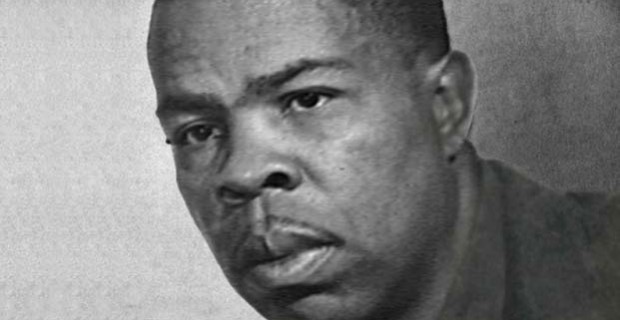
By
(Crisis Magazine) He blasted big business, Wall Street, big oil, General Motors, “excess profits,” “millionaires” and the “wealthy.” He called out the “corporation executive” for not paying his “fair” share.
He attacked “GOP” tax cuts that “spare the rich” and “benefit millionaires.”
He advocated wealth redistribution from greedy “corporations” to “health insurance” and “public works projects.”
He described himself as “progressive,” while his detractors accused him of being a communist.
He adopted slogans like “Forward” and “Change.” He wanted to transform America through what he called “fundamental change.”
He was skeptical of preachers and their effect on God-and-gun clinging Americans, and saw the Catholic Church as an obstacle to his vision for the state. He argued that Christians should support his ideas and enthusiastically sought the support of the “social justice” Religious Left. Moreover, many people were unclear about his personal religious beliefs, including whether he was a Christian.
Who is this man?
If you answered “Barack Obama,” you’re only half right. The answer is Frank Marshall Davis, Hawaii mentor to a young Barack Obama, and Communist Party member 47544.
Davis was introduced to a nine-year-old Obama in the fall of 1970 by Obama’s grandfather, Stanley Dunham, who was seeking a black-male role model or father figure to mentor his grandson. He and the young Obama met many times throughout the 1970s, often for hours at a time late into evenings. Obama refers to Davis literally dozens of times in every part of his bestselling memoirs, Dreams from My Father.
Long ignored, Davis is the subject of my new book—and Catholics should pay attention, given that Davis had some choice words for them and their church. Not unlike the young man he mentored, Barack Obama, Davis saw the Catholic Church as an obstacle to his vision for the state.
Frank Marshall Davis’s vision was a very far-left one. He pushed the federal government to adopt socialist policies, with more and more power concentrated in Washington. He wanted the United States to go the direction of the Soviet Union. And Davis understood that the one institution standing in the way most vehemently was the Roman Catholic Church. “The Catholic hierarchy,” he sneered, had launched a “holy war against communism.”
Indeed it had—and deservedly so. Nothing anywhere in the world persecuted the religious—and people generally—quite like communism. The Church correctly saw Soviet communism as truly, genuinely evil. But Frank Marshall Davis fully disagreed, and he would target the Church as an obstacle to his plans to fundamentally change America.
And so, Davis targeted the Church in commentaries he wrote for the Chicago Star, the Communist Party publication of which he was the founding editor-in-chief from 1946-48.
In one commentary, a July 20, 1946 piece titled, “A-Bombs for Russia,” Davis began by expressing his admiration for Stalin’s Russia: “I salute the Soviet Union,” stated Davis. “I admire Russia for wiping out an economic system which permitted a handful of rich to exploit and beat gold from the millions of plain people…. As one who believes in freedom and democracy for all, I honor the Red nation.”
Yet, as Davis hailed Joe Stalin’s state for its alleged freedom and democracy, there was something else he didn’t admire: It was the “Big Money Boys” and so-called “prostitute press [that] brazenly solicits public hate for [the Soviet Union].” Among those that Davis listed as “hate evangelists” was Cardinal Francis Spellman, who, by Davis’s estimation, longed to “knock out Russia” by bombing it to the Stone Age.
Said Davis: “We’ve got to make the plain people realize that those hate evangelists preaching war against Russia are their enemies, and that peace, freedom and democracy can come only from forcing official America to work in harmony with the Soviet Union.”
Yes, that is, Stalin’s Soviet Union—which, according to Frank Marshall Davis, wanted peace.
Who was obstructing that peace? Davis blamed Harry Truman, the Marshall Plan, Wall Street, big business, capitalism, the press, and the likes of Cardinal Spellman and the Catholic Church. Not only were these sources “hate evangelists,” according to Frank Marshall Davis, but they were the new “Pontius Pilates.”
Davis portrayed communism and the Soviet Union as friendly to Christianity; thus, those opposing Soviet communism were, in the words of Frank Marshall Davis, modern-day “Pontius Pilates.”
A painful illustration of this thinking was a September 29, 1949 column that Davis wrote for the Honolulu Record, the Communist Party publication for Hawaii, which he wrote for from 1949-57. Titled, “Challenge to the Church,” Davis imagined Judgment Day, where anti-communist Christians would be called to account for their transgressions: “On your Judgment Day, when the Lord will ask you for an account of your stewardship, will … your answer be, ‘Lord I was too busy Redbaiting?”
And the Catholic Church especially deserved a good scourging. “The Christian churches, and the Catholic church in particular,” preached Barack Obama’s mentor, “are making a grievous error in their shortsighted belief that the major enemy of Christianity is Communism.”
Not a communist in Moscow would have agreed with Frank Marshall Davis, and the late Lenin would have laughed him out of the country—or thanked him for his efforts.
Not only was Soviet Russia not anti-religious, said Davis, but it had saved the world from Hitler’s “anti-Christian paganism.” Really, Christians worldwide should pay homage to Stalin. Instead, they were blinded by their anti-communist bigotry.
Here, as in so many of these cases, Davis, not unlike Barack Obama, was a man of the far left making appeals to the “social justice” Religious Left for support, especially liberal Protestants.
And when the Catholic Church did not accommodate his plans and policies for the state, Frank Marshall Davis, like Barack Obama, simply told the Church that it was wrong and didn’t bend. Imagine that... (continued)

No comments:
Post a Comment